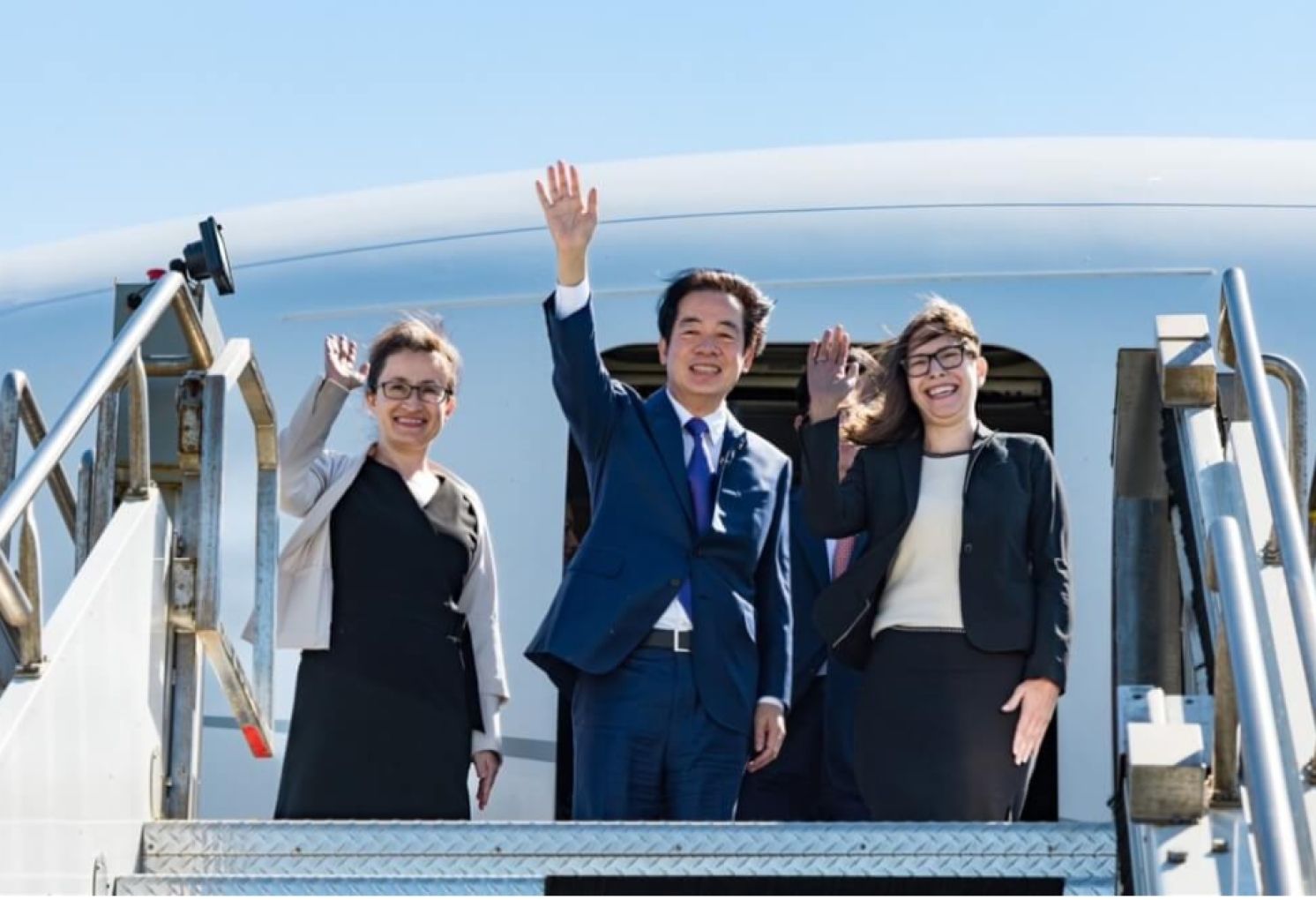
Not Ideal Time for President Lai to Transit Through U.S.
China Times Editorial, August 7, 2024
According to media reports, President Lai Ching-te had planned to visit Paraguay, Taiwan's diplomatic ally in South America, before transiting through the United States. The Office of the President denied these reports. Given current U.S.-China relations and the American political climate, there is a significant risk that this transit could be seen as an attempt to gain visibility by leveraging the U.S. presidential election. The Lai administration should proceed with caution. While President Lai's planned visit to Paraguay aims to strengthen diplomatic ties, President Santiago Peña of Paraguay has already met with him three times between July last year and May this year. Unless there have been recent changes in Taiwan-Paraguay relations, is such frequent high-level diplomacy truly necessary?
The answer is clearly negative. If President Lai travels abroad, the primary goal would be "transit diplomacy" with the United States, with the visit to the allied nation being secondary. This second objective is not entirely within Taiwan's control. President Peña had previously requested substantial Taiwanese investment in Paraguay's semiconductor industry, a request that the Ministry of Foreign Affairs has had to muddle through somehow. If President Lai does visit Paraguay, addressing these demands will be unavoidable, underscoring the costs associated with transit diplomacy.
The timing of President Lai's transit through the United States may be less than ideal. Transit diplomacy is intended to strengthen U.S.-Taiwan relations, boost American support for Taiwan, and secure a form of U.S. endorsement or recognition to address any doubts about Lai. However, at this moment, such a transit could not only fail to achieve these goals but might also be perceived as reckless, hasty, and unwise.
With U.S. President Joe Biden having announced his withdrawal from the re-election campaign and becoming a "lame-duck president," the feasibility of President Lai using this opportunity to engage with both parties' presidential and vice-presidential candidates or their campaign teams is low. It is more likely to result in disappointment rather than success.
The Democratic National Convention, scheduled from August 19th to 22nd, will officially nominate Vice President Kamala Harris as the Democratic candidate, marking the start of a more intense phase in the U.S. election. With Harris’s unexpected rise, what once seemed like a clear advantage for Republican candidate Donald Trump has now turned into a tight race. Major countries are closely observing the U.S. election without taking sides. President Lai's hope to visit the United States during this sensitive period, seemingly aims to leverage the "Taiwan card" to catch attention from U.S. candidates. It could backfire, making Taiwan appear as though it is trying to stir up trouble.
Overall, foreign policy is not a major focus in this U.S. election. Even within the realm of foreign affairs, the primary concerns center on the Ukraine war, Middle East conflicts, and U.S.-China relations, including the Taiwan issue. President Lai's appeals are unlikely to have a significant impact; instead, they may draw unwanted attention, making it appear as though Taiwan is attempting to provoke U.S.-China tensions or test American boundaries during the election.
Republican presidential candidate Donald Trump has made it clear that his primary interest in Taiwan lies in collecting protection fees and focusing on Taiwan's semiconductor industry, while steering clear of commitments related to defending Taiwan. Kamala Harris, on the other hand, lacks a distinct stance on cross-strait issues and is likely to follow the Biden administration's established policies, maintaining a friendly attitude toward Taiwan while adhering to the “One China” policy as a non-negotiable red line. President Lai's attempt to use a U.S. transit stop to create a diplomatic breakthrough does not align with the Democratic Party's consistent approach, and Harris is unlikely to let Taiwan-related issues distract from her election priorities.
The Democratic Progressive Party's (DPP) diplomatic efforts have a significant blind spot: they focus too much on domestic propaganda and excessively manipulate Taiwan-U.S. relations. This, in turn, has provided Communist China with an excuse and opportunity to intensify pressure on Taiwan. The effects of then-U.S. House Speaker Nancy Pelosi's visit to Taiwan in August 2022 and then-President Tsai Ing-wen's meeting with then-House Speaker Kevin McCarthy in Los Angeles in April 2023 were short-lived. Now, as these politicians gradually fade from the political stage, what remains is the disappearance of the median line in the Taiwan Strait, Communist China's routine military activities around Taiwan, and a worsening security situation for Taiwan.
Learning from past experiences, the Lai administration should wait for the outcome of the U.S. election before focusing on the new administration's foreign policy. A pragmatic approach that seeks to avoid further straining cross-strait relations should guide Taiwan's efforts to engage with the United States. In the meantime, it would be quite prudent to refrain from taking premature actions.
From: https://www.chinatimes.com/opinion/20240807005113-262102?chdtv